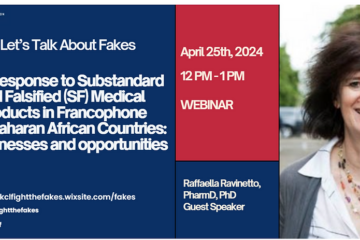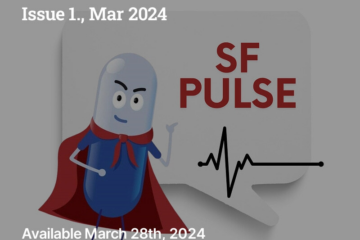Two new reports were released last week focusing on the prevalence and impact of illicit trade on people’s well-being with both reports also highlighting the detrimental implications of falsified medicines.
The report ‘Mapping the Impact of Illicit Trade on the Sustainable Development Goals’ released by the Transnational Alliance to Combat Illicit Trade (TRACIT) investigates illicit trade in 12 key sectors, among them pharmaceutical products, and maps these against the 17 United Nations Sustainable Development Goals (SDGs).
The report emphasizes that falsified and substandard medicines not only threaten people’s health and well-being, but they have broader socio-economic implications affecting people’s work, income level and their extended families. Furthermore, fake medicines undermine investments in public health systems and trust in health care professionals, and they damage countries’ economic growth and sustainable development. Falsified medicines may also undermine investment in R&D of new drugs and can thus have a negative impact on pharmaceutical innovation. Lastly, organized crime in pharmaceuticals threatens peace and justice more generally.
The report concludes that the trade of falsified medicines impacts achievement of seven SDGs:
SDG 1 – No poverty
SDG 3 – Good health and well-being
SDG 5 – Gender equality
SDG 8 – Decent work and economic growth
SDG 9 – Industry, innovation and infrastructure
SDG 12 – Responsible consumption and production
SDG 16 – Peace, justice and strong institutions
The report ‘Transnational Organized Crime in Southeast Asia: Evolution, Growth and Impact’ of the United Nations Office on Drugs and Crime (UNODC) analyses the impact of illicit markets in Southeast Asia, including the pharmaceutical sector. It identifies the region as a major hub for the trafficking of substandard and falsified medicines with the Philippines, Indonesia, Thailand and Viet Nam being the countries in the region with the highest incidents linked to counterfeit meds. In 2017, Asia accounted for over one fifth of the total 3,509 global pharmaceutical crime incidents reported to the Pharmaceutical Security Institute (PSI) Counterfeit Incident System. Falsified medicines found in last years in the region include a variety of medicines and vaccines, such as anti-malarial drugs, hepatitis C treatments, tuberculosis drugs, antibiotics, yellow fever and rabies vaccines, and anti-cancer drugs.
The report gives various policy recommendations to halt the spread of falsified medicines:
-
Cross-border cooperation need to be strengthened to systematically gather data and information and to enhance timely information-sharing and collaborative action on the quality of suspected falsified and substandard medicines
-
New and revised legislations are necessary if they are to remain applicable to the increasingly complex nature of pharmaceutical markets and pharmaceutical crimes
-
Expansion of the region’s pharmaceutical manufacturing capacity to boost the legitimate trade in pharmaceuticals


